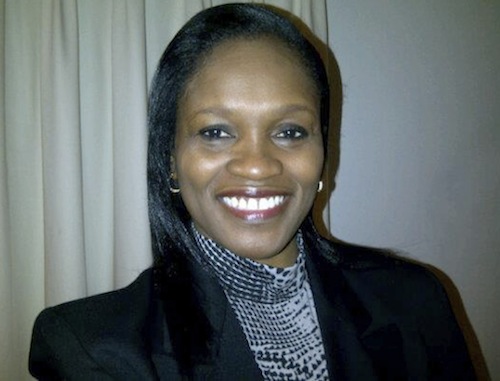Career
Move Back To Nigeria: “My Mission is To Reach Out To ALL Women, Rich or Poor” Kemi Ogunyemi Speaks Candidly on Her Move
 Move Back to Nigeria is a series on BellaNaija which aims to encourage young and not-so-young professionals in the diaspora who are trying to make the decision of whether to move back to Nigeria. In collaboration with the brilliant team at MoveBackToNigeria.com, we hope to bring you a weekly interview with individuals who have successfully made the leap, considering the leap, as well as those who have tried it and realized it is not for them. MoveBacktoNigeria.com’s mission is to showcase stories of Nigerians abroad who have moved back home and are taking giant strides, often against all odds and to serve as inspiration to others. This, however, does not preclude us from sharing stories of the people who have moved back and are facing various challenges.
Move Back to Nigeria is a series on BellaNaija which aims to encourage young and not-so-young professionals in the diaspora who are trying to make the decision of whether to move back to Nigeria. In collaboration with the brilliant team at MoveBackToNigeria.com, we hope to bring you a weekly interview with individuals who have successfully made the leap, considering the leap, as well as those who have tried it and realized it is not for them. MoveBacktoNigeria.com’s mission is to showcase stories of Nigerians abroad who have moved back home and are taking giant strides, often against all odds and to serve as inspiration to others. This, however, does not preclude us from sharing stories of the people who have moved back and are facing various challenges.
There have been a few requests by you, our readers, for more features in the healthcare space, and we are truly delighted to bring you this week’s interview. Kemi Ogunyemi is a pioneer in women’s healthcare in Nigeria. Read on for more on her education and professional background, why she chose to move back to Nigeria, her thoughts on the healthcare issues in Nigeria, how she is contributing to the solution, and other useful facts. We found her to be a truly inspiring lady and hope you feel the same way after reading this interview.
Thanks for speaking with us. Can you please introduce yourself and tell us what you do?
My name is Mrs. Kemi Ogunyemi and I am a woman’s health advocate with a nursing background. I moved back from the States about six months ago to set up a well woman health centre in Lagos designed to provide preventive health care services.
Have you always been in the US or did you leave Nigeria for the States?
I left Nigeria in 1986 and went to England with my husband. We had our three children and then moved to the US with my husband who wanted to further his medical career.
What made you leave Nigeria in the first place?
We left Nigeria to pursue our educational aspirations. We always intended to come back and certainly didn’t plan to stay away so long.
Please take us through your educational background.
I was born in England and came back to Nigeria when I was about five or six and had most of my schooling in Nigeria, studying nursing at University College Hospital in Ibadan. I then went to the University of Manchester for a degree in Health Service Management and afterwards, got a Masters in Health Care administration and a Masters in nursing from the University of Phoenix in Arizona.
Was a career in healthcare always your intention?
Yes. My dad was a magistrate and everybody in the family wanted to be a lawyer to take after our dad. My mum was a midwife and I decided to follow in my mum’s footsteps and thankfully, I have thoroughly enjoyed it. My specialty is in cancer care and through the course of my career I have met so many people who I hope I have impacted and who have also impacted on my life as well and so, I have no regrets whatsoever.
And your professional background, please detail that?
I trained as a nurse and a midwife. I worked briefly as a family planner at the University teaching hospital Ibadan before I moved to the UK. Nursing is different in the UK and US. There is a lot more training and I gained a lot of skills and of course went further academically. I went from bedside nursing to being a director of a cancer unit.
In the UK and US nurses work as a team with doctors and other health professionals. I was in charge of my unit budget; I hired my own nurses and was part of committees involved in policy making and strategic planning. Cancer care has always been my passion. I obtained my oncology certification in the US. This certificate basically confirms ones nursing expertise in cancer care.
Why cancer care?
Cancer nursing found me. I met a young lad who had a blood shot eye and went to see the doctor. He was later diagnosed with leukaemia. I cared for the man on my unit and just got interested in his care and was happy when he went into remission. From then on I knew what area of nursing I wanted to specialise in.
That sounds like an organic growth career wise?
Yes it is, I moved from delivering babies up to saving people and helping them fight for their lives. I worked with several organisations and got a certification in Oncology care. So, I became a certified oncology nurse and then I studied for my Masters and just moved up the career ladder.
Eventually, since I knew we were going to be moving back to Nigeria, I went to back to England for two years for some more ‘relevant to Nigeria’ work experience and worked at the Royal Free Hospital, Hampstead, London, resigning from there in November last year.
What was the reason for finally moving back to Nigeria?
Like I earlier said, we always knew we would move back to Nigeria, we just didn’t know when. Over the course of my career especially, I met a lot of Nigerians who partake in medical tourism, most of whom have been women diagnosed with cancer. While speaking to and counseling some of them, the first thing I usually find out is delayed diagnosis/treatment and secondly, the women admit to unawareness or not having the time to get checked out early when a problem is noticed.
I knew there was a health gap in Nigeria. Preventive care, which includes cancer screening, was not common place in the lives of a lot of women. My research supported this. Only 30% of women in Nigeria get regular health checks. I believe that lack of awareness has led to the increase in heart attacks and cancer in Nigerian women. I also believe that Nigerians do not have to go to the UK or US for health checks.
There are 2 dimensions to the health system. We have the less privileged, who have little or no access to health care and then the rich who have access to health care but they take their health for granted or are just as unaware as the less privileged.
My mission is to reach out to ALL women, rich or poor.
Since moving back, how have you found life in Nigeria?
There are some issues that I struggle with apart from the obvious infrastructural challenges. Some aspects of the cultural mindset can be sometimes frustrating. For instance, people do not feel the need to return calls or emails. They refuse to be punctual and professional and it just reduces productivity.
The lifestyle is also unique in the sense that people work hard from Monday to Friday and just go into party it up at the weekend. Traffic also takes some getting used to, so one has to plan well ahead. If I want to go somewhere by two o clock, I have to leave home with enough hours to spare. In terms of moving around, the heat and everything else, you just have to move with the flow and adapt.
You cant say ‘I can’t stand it, I gotta go’ you can’t give up because there will be many days that you will want to give up and go back. It is easy to go back, but I’ve decided that this is my country and I intend to stay here and transfer my skills and experience, previously employed in Europe and in America but now for Nigeria.
Do you think that posture is somewhat sentimental?
Not really. Because living here is challenging and maybe it is a challenge that I like. I just wanted to do something new with fresh challenges and so, here I am.
Tell us about what you do now in Nigeria.
I own a company called Kemski Health Service. It is a health and wellness company, providing holistic preventive health service. In my experience, I found that people are dying unnecessarily, going abroad unnecessarily, and are often too materialistic and busy with how they look on the outside but not what’s going on deep inside. There is no preventive health care system in place and health for me is about the mind, body and soul.
What we do is to encourage annual checkup for women of all ages. For instance, we have a dedicated menopause clinic for ages 45-55, we also educate teenagers on health lifestyles. Also important is meeting emotional and psychological health needs. Women go through a lot emotionally and so we try to make sure we help in the mind, body and spirit issues.
We have a lot of health issues in Nigeria. Heart attack for example is the number one silent killer, taking over from breast cancer. While breast cancer remains the number one cancer of women, followed by cervical cancer, heart attacks are very common. I organised a free health fair recently and while doing blood pressure tests, we found out that seven out of ten adults had high blood pressure and five out of those ten didn’t’t know they were hypertensive. So, in essence, we are about providing preventive healthcare to everyone we can reach.
Why do you think we have this prevailing situation in our healthcare system?
I put it solely on the government’s lap. I know it is each person’s responsibility to maintain good health but the infrastructure is not there. The hospitals are run down and some are just filthy. All the political parties have health care as an important policy which they will prioritise. Can you imagine that we do not have a cancer center? Why not? Why can’t we have a state of the art cancer hospital that patients can come to from the whole of Africa? Why do Nigerians have to go to India? It doesn’t make sense.
What about the Nigerians that cannot travel out? Who cares for them? I have visited PHCs (Primary health centers) and I was so sad. There were no supplies, no drugs and the environment was not conducive for treating patients.
We have so much money but so little for the health of the average Nigerian. We have so many health professionals in Diaspora, why can’t we bring them back and improve the health system? These are questions that need to be asked and answered.
What has the reception been like for your business and range of services?
It has been somewhat erratic.When I talk to women about their health, nobody says, ‘I don’t want to be healthy’. Everybody wants to be healthy. But the one thing I’ve found out that surprises me the most, is fear. The fear of the unknown and finding out what really is wrong.
Some people think if they don’t know their health status they are safe. I can tell you that the fear that you will feel when it is too late and we can’t do anything is worse than whatever may be feared now. Several people tell me they are very interested in this and absolutely love the idea, yet I’m still the one that has to push them to get screened.
How has the operational side of running the business been for you in terms of funding, logistics and infrastructure?
That is another issue because in Nigeria, when you have been away for a long time and you go to banks for loans, there is a 99.5 percent chance that they will tell you No. My funding came from my savings and also my family.
The interest charges for loans are unbelievable. It is very difficult for small businesses to maintain repayments especially if the business has not picked up.
Personally I think Nigeria is an expensive place. Rent is too high; you have to factor in a generator in your business plan because of the electricity issues. Marketing is also expensive. I couldn’t afford a marketer so I am marketing my services myself and I actually like it because I am the only one that can sell it with passion.
Running costs have to be managed efficiently. For example we only turn on the generator when we need to. Diesel can be expensive too.
Staffing is not too bad. I have 4 members of staff and they are pretty good.
Where do you see your brand in the next few years?
I would like to open more branches but before then I want to set up an NGO so that I can help clean up the primary health centers and help improve the health of the rural community especially the women and children.
Furthermore, I want to be involved in policy-making in health care, because I am not one of those people who just sits down and complain. I want to be part of the decision making process so I am going explore that soon.
Finally, what would you say to people considering moving back to Nigeria?
First of all, you have to know your stuff and be passionate about it. Your passion comes out in what you do and then the recipients get those positive vibes. You also have to be focused and not give up when you hit a brick wall. You just have to hang in there because in Nigeria, you have to persevere, you have to keep knocking on doors and you basically become a nuisance in a positive way.
You must be ready psychologically and financially. Take a career break first so that you have a job to come back to in case things don’t work out as you expected.
People encourage you to come over to Nigeria and say Nigeria is the place to be. Yet, if you come, the same encouraging people are nowhere to be found. So don’t rely on anybody telling you to come back to Nigeria except the person is financially buoyant and responsible for you and if that’s the case, then let them give you the money first.
Furthermore, you need to have people you trust, that’s very vital as there are so many issues and you may need their support.
There are many of us who have moved back and we are still standing and still happy to be home.
Many thanks for your time and best wishes moving forward.
























